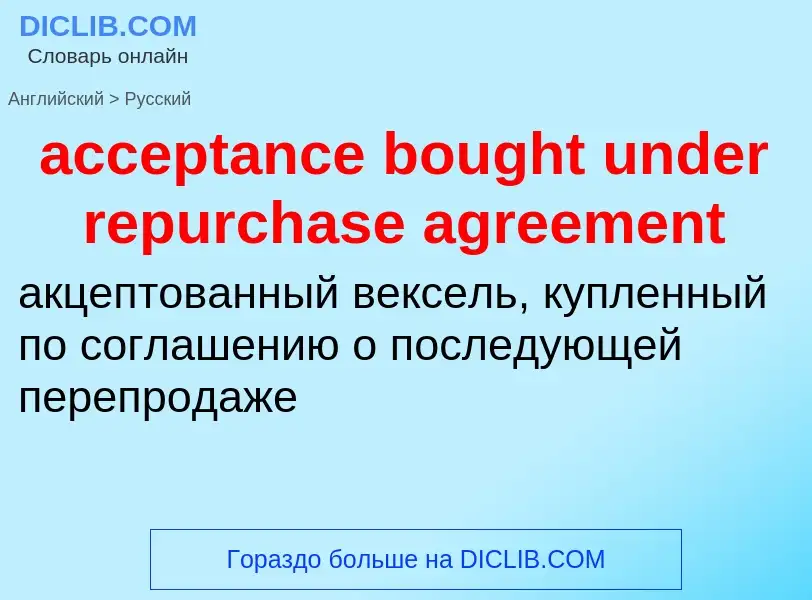Перевод и анализ слов искусственным интеллектом ChatGPT
На этой странице Вы можете получить подробный анализ слова или словосочетания, произведенный с помощью лучшей на сегодняшний день технологии искусственного интеллекта:
- как употребляется слово
- частота употребления
- используется оно чаще в устной или письменной речи
- варианты перевода слова
- примеры употребления (несколько фраз с переводом)
- этимология
acceptance bought under repurchase agreement - перевод на русский
[ri:'pə:tʃəs]
общая лексика
покупать обратно
покупка ранее проданного товара
существительное
[ri:'pə:tʃəs]
коммерция
покупка ранее проданного товара
глагол
общая лексика
покупать обратно (ранее проданный товар)
коммерция
вновь покупать ранее проданный товар
Определение
Википедия

A repurchase agreement, also known as a repo, RP, or sale and repurchase agreement, is a form of short-term borrowing, mainly in government securities. The dealer sells the underlying security to investors and, by agreement between the two parties, buys them back shortly afterwards, usually the following day, at a slightly higher price.
The repo market is an important source of funds for large financial institutions in the non-depository banking sector, which has grown to rival the traditional depository banking sector in size. Large institutional investors such as money market mutual funds lend money to financial institutions such as investment banks, either in exchange for (or secured by) collateral, such as Treasury bonds and mortgage-backed securities held by the borrower financial institutions. An estimated $1 trillion per day in collateral value is transacted in the U.S. repo markets.
In 2007–2008, a run on the repo market, in which funding for investment banks was either unavailable or at very high interest rates, was a key aspect of the subprime mortgage crisis that led to the Great Recession. During September 2019, the U.S. Federal Reserve intervened in the role of investor to provide funds in the repo markets, when overnight lending rates jumped due to a series of technical factors that had limited the supply of funds available.





